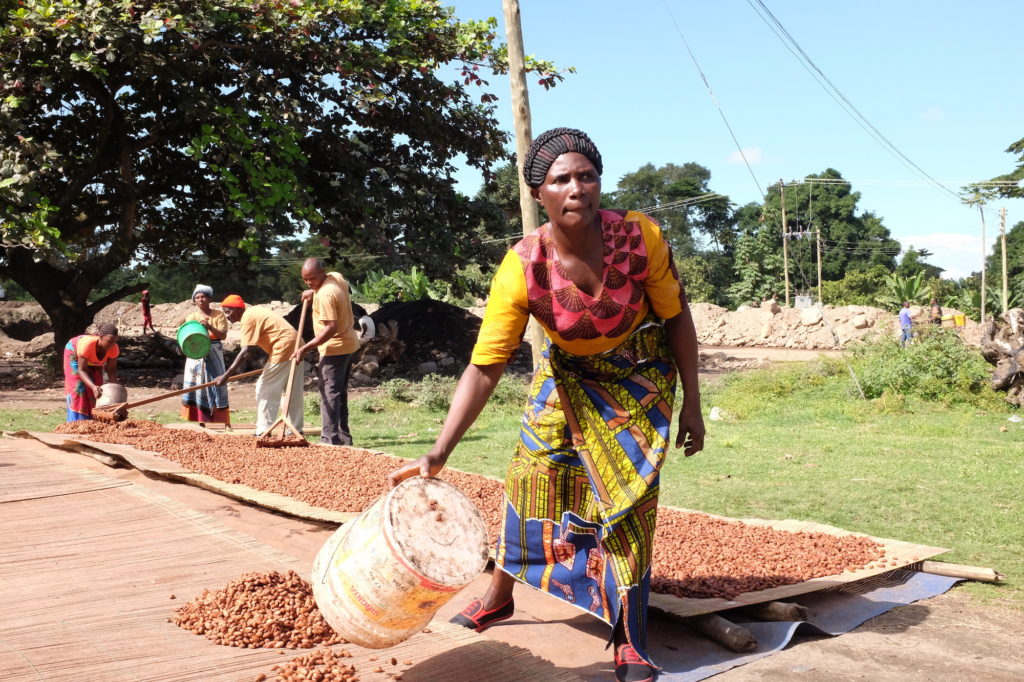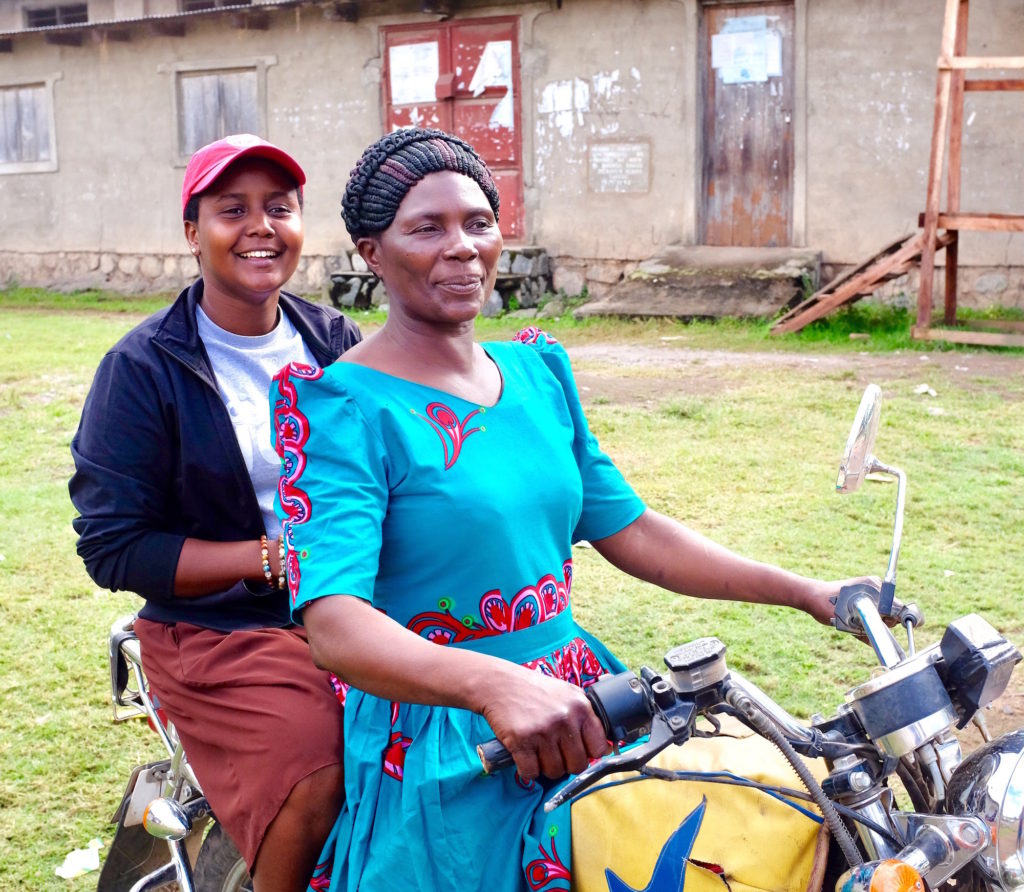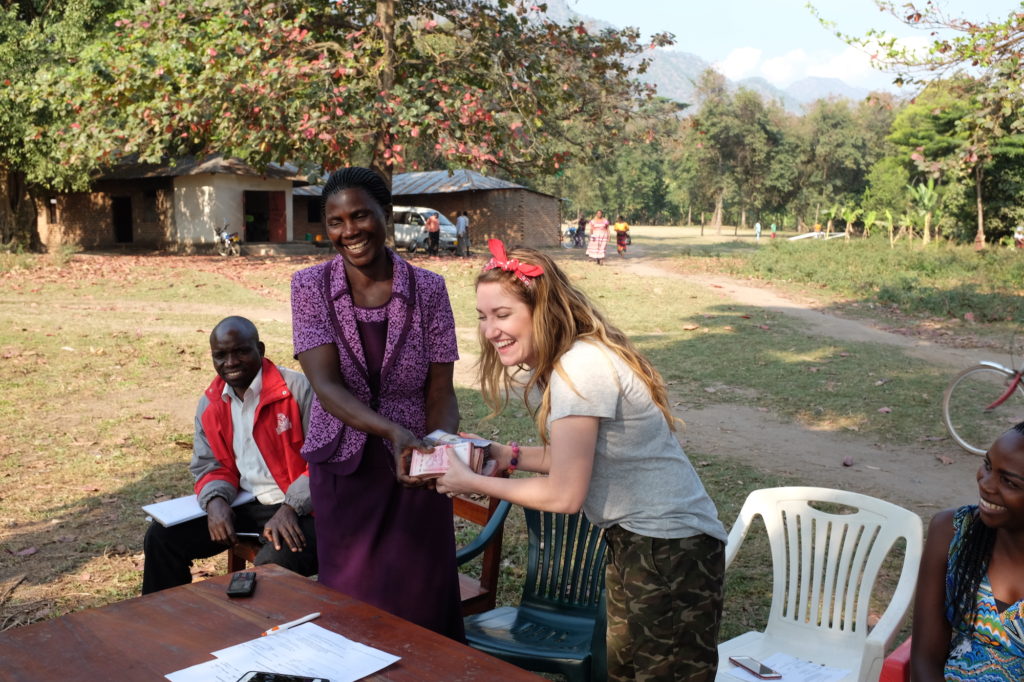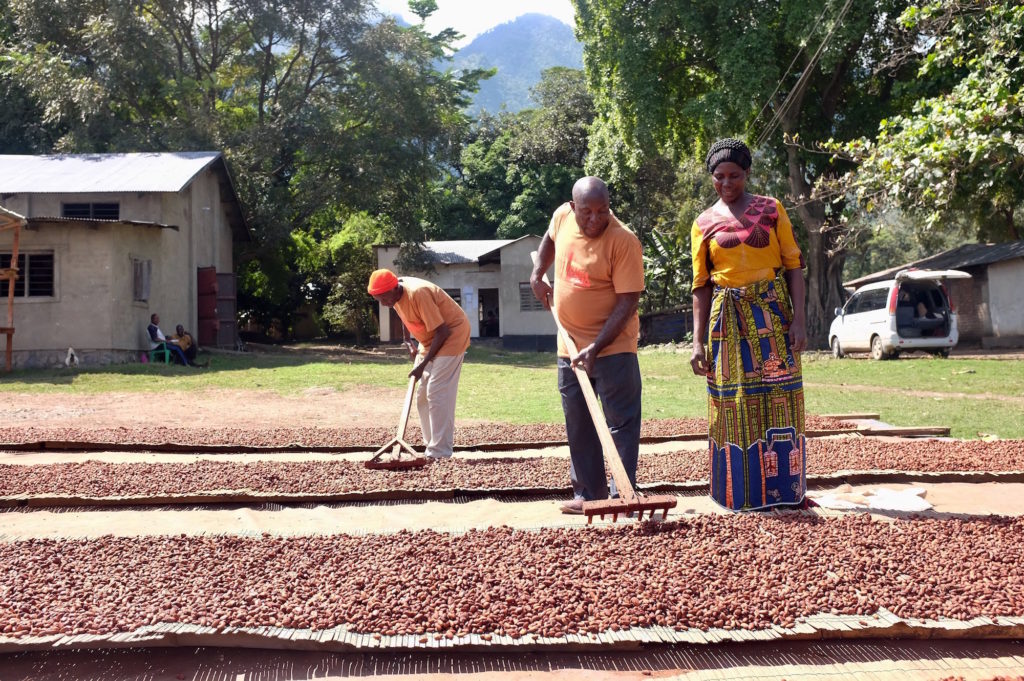
The crisis is physical, emotional, spiritual, financial, political and existential. It’s individual and collective. There’s a kind of unsettling dissonance in these feelings like being in the trough of massive ocean swells buffeting us about daily without the ability to even see the crests. At least that’s how I feel much of these days.
There’s been a lot blogged, memed, posted, and YouTubed in the past two months about fear. Do this, don’t do that, read this, breathe like this or take this pill to diminish your fear. The sheer volume of wellness strategies can be overwhelming.
I decided to ask one of my mentors about this anxiety and fear – Mama Mpoki; the chairwoman of the 60 member cocoa bean cooperative we’ve partnered with in remote Tanzania for a decade. She and her husband, Mr. Livingston, live in Mababu, a small village near Lake Nyasa in the foothills of the Livingston mountains. I wanted to ask her about joy amidst sadness without fear. The people in this part of Africa, and their ancestors before them, have lived their lives on the edge. The edge of death by malaria, starvation, HIV/AIDS, to name a few. That does not even cover their days on the edge of life economically. If we dropped you into this spot for an hour or two you’d think “these poor people have nothing” and you’d be oh so wrong. If you stayed for a week you might not want to leave.
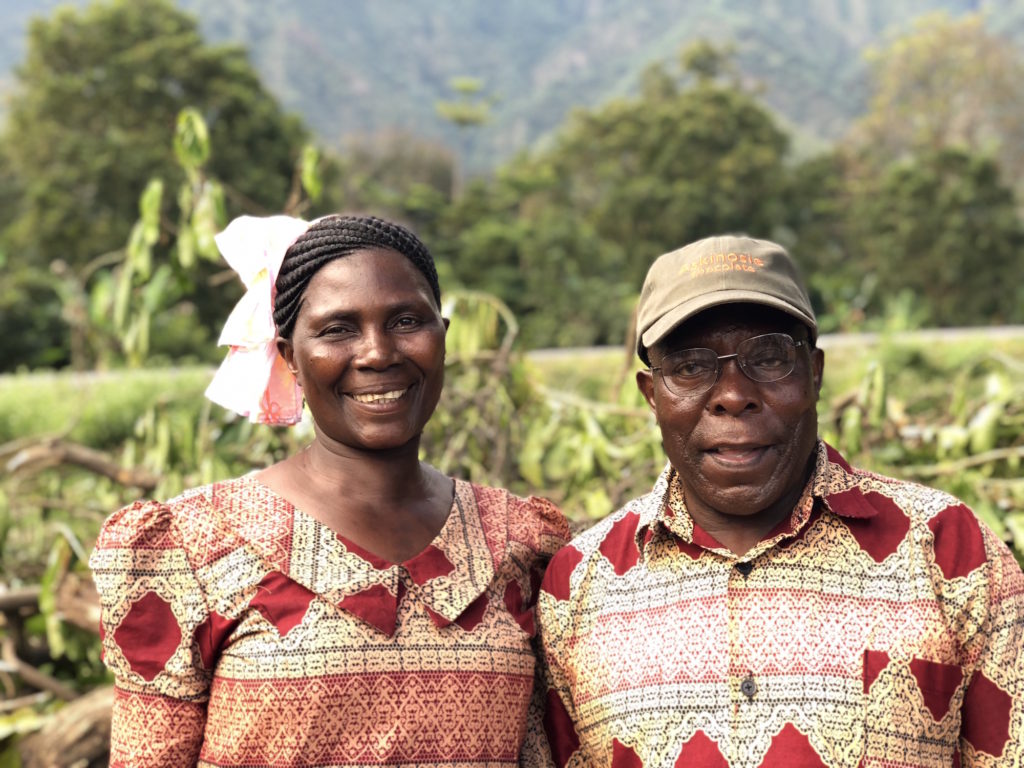
I’ve been visiting Mama Mpoki and her cooperative for ten years. We’ve led groups of local high school students to meet her and the farmers. She’s a strong, confident, compassionate, regal, joyful, inspiring, devout leader. I posed my question to her a few days ago on WhatsApp video asking her to illuminate this mystery of joy and sorrow in light of “the Corona” as she called it. As she was gathering her reply she laughed at the question. She’s known me for a long time but still marvels that we would ask such questions with obvious answers.
Mama Mpoki explained it in four parts:
First, we’re born into a life with parents and ancestors who teach us not to fear death. We’re raised to take life as it comes to us.
Second, from a very early age we see our elders live long lives without disease because they eat natural foods. They live into their 90’s or even to 100 years old. If they do get a disease they do not fear death.
Third, we have a personal belief in God and no matter what one day we will die.
Fourth, we live a mutual life encouraging and supporting each other all along the way. We have strong confidence in this. We know as we approach death that we will be lifted up by others. We help each other.
I asked what she thought of us right now in fear and panic here in America. She laughed again, maybe a little less this time, and said, “Here in Mababu we’re not scared of the Corona. We’re taking all of the precautions the government tells us. We’re being careful. But we believe that it does not have power over us even if we die.” “Yes but what about us?” I ask. “Well, we think that Americans probably do not eat natural good foods. You’re raised in a rich lifestyle and many of you might not know what it means to live a hard life. You do not have elders to help raise you up. And without a mutual life then who encourages you?”
It’s painfully simple. Yes these could be discounted as sweeping generalizations. Not all is lost for us as a cultural collective. I have long said that the next century will bring African missionaries to our land to teach us how to live, how to worship, how to open our hearts, and how to die. But most importantly they can teach us right now what it means to live in mutuality. In Swahili the word is “kujengana” which means “to build each other up”. I need to let this soak in. Perhaps Mama Mpoki and the farmers can teach me from a distance how to diminish some of my own fear and panic.
